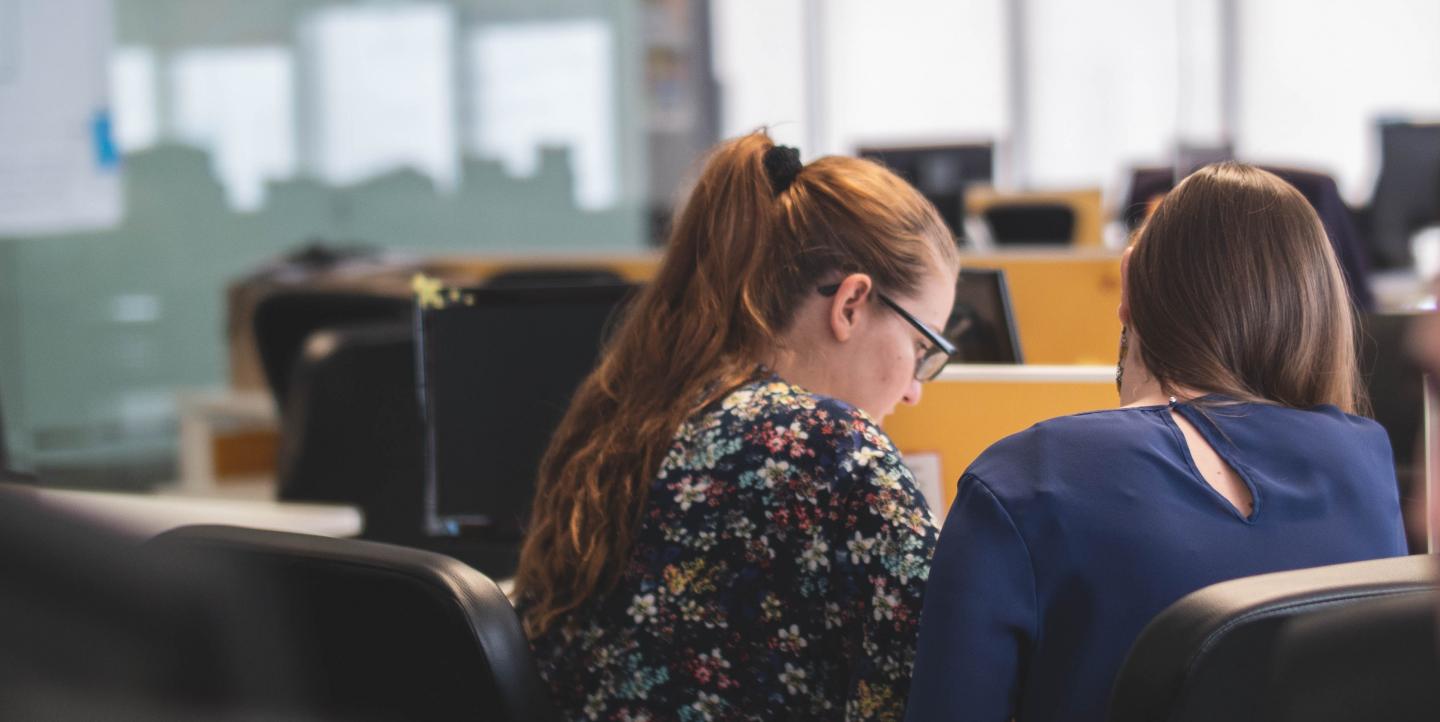Audrey Lebel recently left her newsroom — turning down a full time staff job — and became a full time freelance journalist. Although she knew the position would be a challenge, she wanted more freedom to focus on the stories that interested her. She found, however, that the freelance life wasn’t as isolating and competitive as she expected.
As she looked for shared office space, she found something better: a team of freelance journalists who shared her personal and journalistic values.
Lebel joined Judith Duportail, Cerise Sudry-Le Dû and Pauline Verduzier in their new journalistic collective Journalopes, which can be translated to Journo-bitches.
The collective doesn’t just share an office in Paris, but also shares values of solidarity, kindness and community, and they work on issues relating to women’s rights and human rights.
“It’s a shared state of mind. It’s kindness, sorority, helping each other, sharing contacts, giving each other advice [and] supporting each other when an editor hasn’t answered, has said no to a pitch or wants us to rework a story,” said Lebel.
In the past two years, new members arrived — Laurène Daycard and Justine Brabant — and the team now consists of six women, which Lebel considers a practical number for a team that wants to remain cohesive and manageable. Duportail and Sudry-Le Dû recently moved — to Berlin and Istanbul respectively — but social media helps the group to remain closely connected.
Members discuss work every day in a private Facebook group, and they have a WhatsApp group where they mix personal and professional conversations. Each month they hold a meeting on Skype where they talk to each other about their ongoing work and ideas for future projects.
While they all cover women’s rights, they have developed expertise on different issues, including social media, intimacy or women’s rights in different regions around the world.
Lebel says that there is rarely competition, and whenever tension arises, they immediately communicate. Instead of creating problems, their strong identity has allowed them to become better known, and they promote each other’s work through their collective’s social media accounts.
“We’ve gained visibility because we are clearly identified, after two years, as a feminist and feminine collective covering social issues relating to women’s rights in France and abroad,” said Lebel.
While members support each other through disappointments and rejections, they also celebrate each other’s successes, which boosts their team members’ confidence. Last year for instance, Lebel reported from Ukraine.
“I don’t think I would have gone live in Ukraine without the Journalopes,” said Lebel. “They proved to me that I could do it.”
While in Ukraine, Lebel said she never felt alone and felt safer as a result of the collective. Whenever a member goes to a conflict zone, they share their own local numbers with the rest of the group, as well as those of their photographer and fixer.
“We give [the group] our agenda, including the days and places where we plan on being,” said Lebel. “It’s an amazing advantage.”
When Journalopes started, its members had been clear that they didn’t want to be friends but co-workers, thinking that mixing work and friendship would not be efficient or productive. However, through their shared experiences, they became closer, and they now consider themselves as a family. During their monthly Skype meeting, they talk about their work but often finish sharing their personal updates.
“Just like in any collective, newsroom or team, there are tensions, but we know how to handle [them],” said Lebel. “We’ve all found what we wanted [with Journalopes], and it has been a real strength to be together.”
Main image CC-licensed by Unsplash via Mimi Thian.

